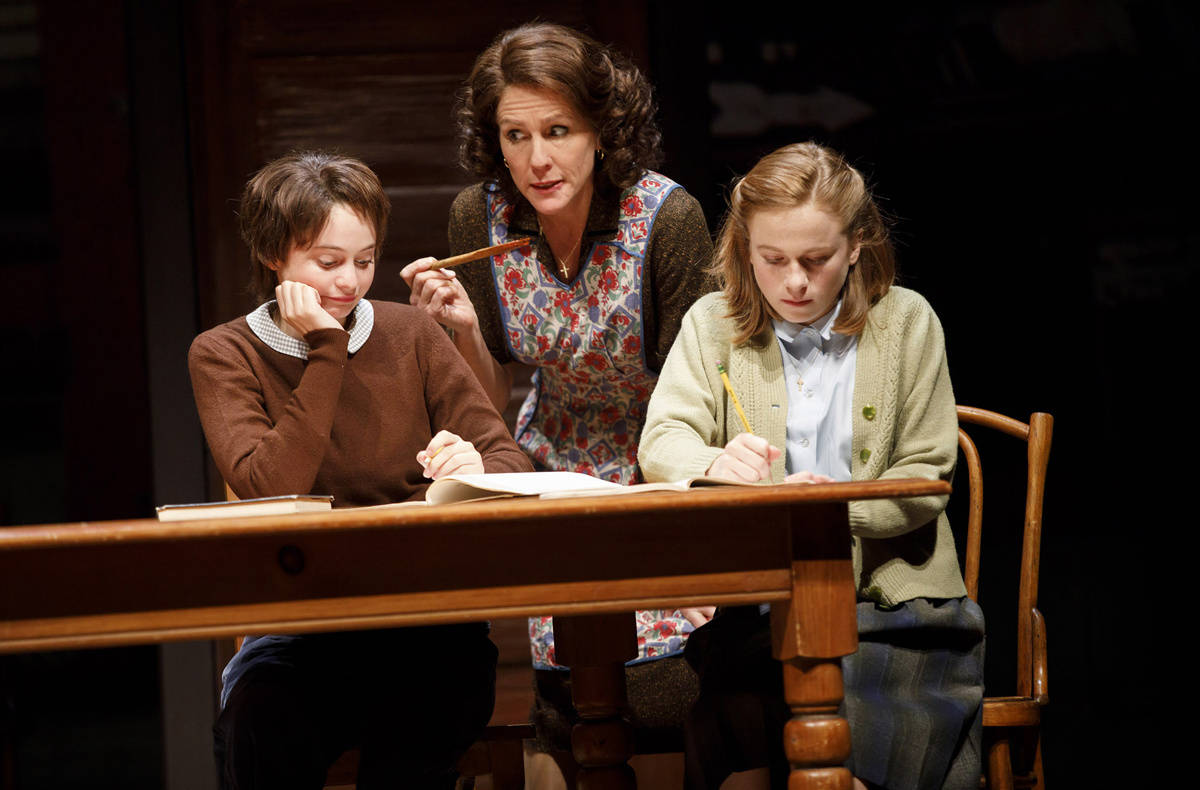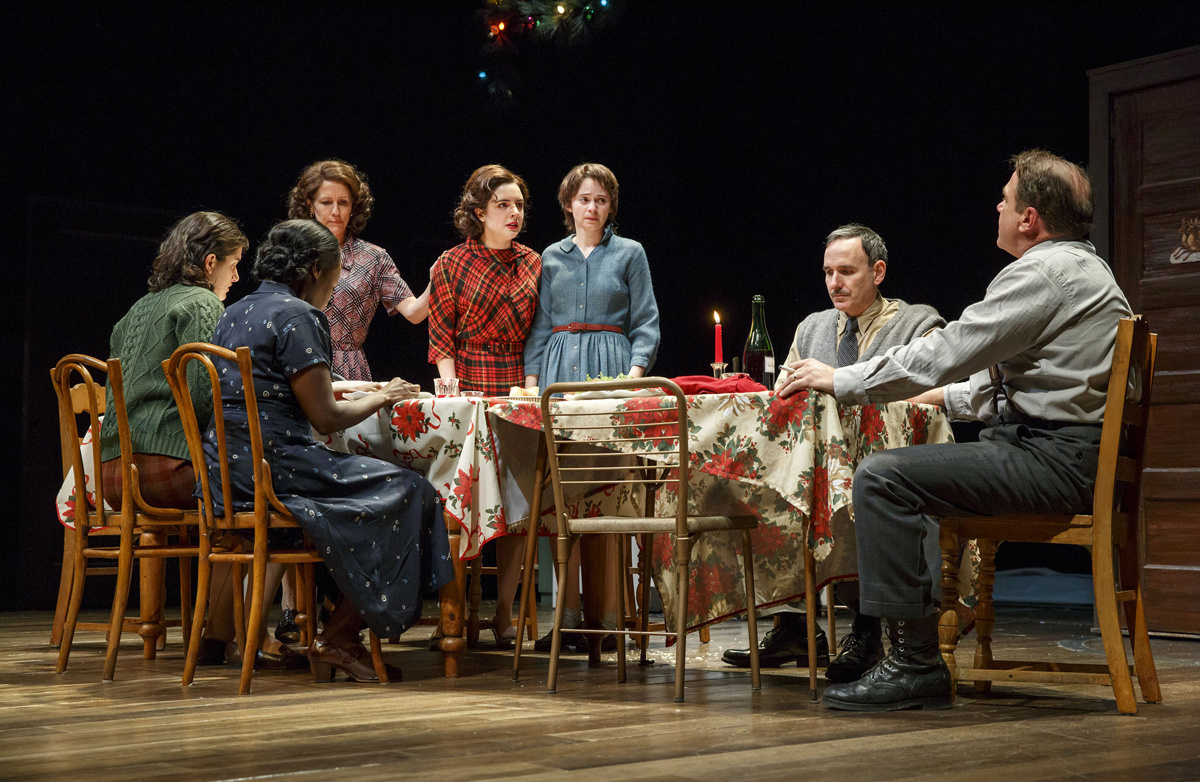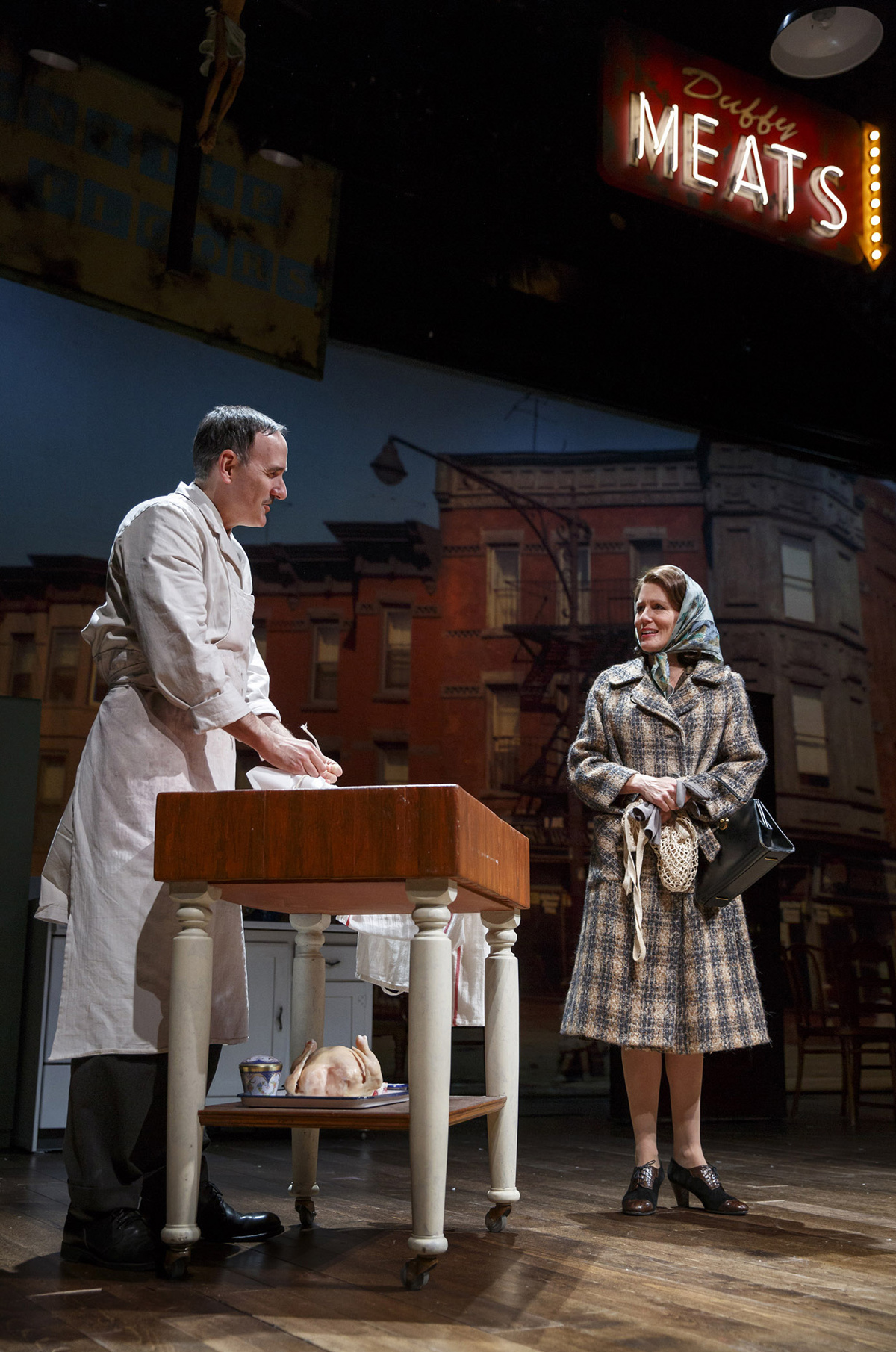
Playwright Meghan Kennedy remembers Mama in her scattered memory kitchen sink drama NAPOLI, BROOKLYN – a series of short all-around-the-mulberry-bush scenes now playing off-Broadway at the Laura Pels Theatre through September 2nd.
Mama is Ludovica (Luda) Muscolino (a strong Alyssa Bresnahan) – an Italian immigrant with a slew of delicious recipes, a good heart, a thick accent and an even thicker husband Nic (Michael Rispoli). A real stereo-typical brute.
Luda desperately wants to be able to cry again. Even the cut onion she carries around and speaks with in lieu of God doesn’t do the trick. Nor the cigarette burn Nic inflicts on her while shuffling around between the sheets.
They have bred three daughters. Nic probably wanted sons so that they could follow in his mis-steps but that didn’t happen. Luckily. This is their two hour – one intermission story according to Meghan Kennedy via the Long Wharf Theatre, directed with acute details of the period by Gordon Edelstein – and now a Roundabout co-production.

Francesca, the youngest (a feisty and delightful Jordyn DiNatalie) wants to be able to run off to Paris as a stowaway with her best friend Connie Duffy (Juliet Brett) to seek adventure and develop their budding love for one another. She has chopped off her hair that resulted in her sister Vita (Elise Kibler) being sent off to a reform convent as a result of Nic breaking her nose and a few ribs while protecting Francesca from his brutality. She always wanted to be a nun but has changed her mind after losing her faith.
She wants to return home and communicates with her sisters by sending letters from the convent bringing back fond memories of Tracey Nelson as Sister Steve in FATHER DOWLING with her Brooklynese accent.
The eldest daughter Tina (Lilli Kay) wants to help out at home by working in a packing factory with her Afro-American friend Celia Jones (Shirine Babb) who attempts to help Tina with her self-esteem issues.

The neighborhood Irish butcher Albert Duffy (Erik Lochtefeld) the dad of Connie dreams of being with Luda wanting some sort of romantic relationship to develop. It is their scenes together which are most memorable. Along with those of Connie and Francesca.
So there is a lot of wants on the table. And accents. Which sometimes tend to obscure the dialogue. All this is served on a serviceable realistic/symbolic set by Eugene Lee that features the Muscolino’s kitchen, a large Crucifix, Stained Glass Window, a large bed, a butcher block and boxes to pack up some the tiles at Tina and Celia’s place of employment. A background of the block of houses and a lamp post set the scene precisely. The costumes (Jane Greenwood) are an excellent representation of the time period.
And then it happens. Near the end of Act I. A catastrophic event that crashes down into the home and lives of all those involved and jolting the audience from its reverie. This is explained during intermission with a news article of the tragic event projected on a screen.
Unfortunately you may well remember the event more than the rest of NAPOLI, BROOKLYN. Certain aspects are not believable (particularly Nic’s transformation) and because there has not been a truly focused through line – too many stories going on – the not fully cooked production is ultimately unsatisfying with the onion making a return albeit under different circumstances.

Photos: Joan Marcus
Visit www.TalkEntertainment.com
Tags: No Comments

0 responses so far ↓
There are no comments yet...Kick things off by filling out the form below.